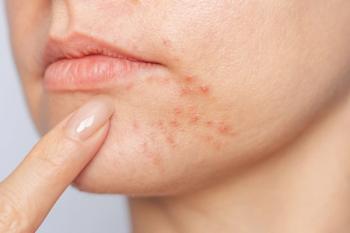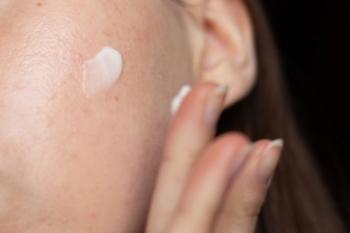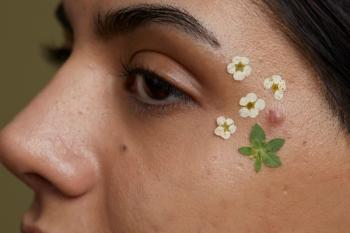
- Dermatology Times, September 2021 (Vol. 42, No. 9)
- Volume 42
- Issue 9
Acne Care for Transgender Patients
Testosterone therapy often leads to unique challenges.
For transmasculine patients undergoing testosterone therapy, acne is more than a transient adverse effect (AE), said Howa Yeung, MD, MSc, an assistant professor of dermatology at Emory University School of Medicine in Atlanta, Georgia. Many patients require topical and oral treatments that could include isotretinoin, which creates unique challenges in this population.
“For transgender and gender-diverse patients who start gender-affirming hormone therapy, oftentimes their skin also reacts to changes in hormone levels,”1 Yeung said. For transmasculine patients, he said, testosterone injections often increase skin oiliness, fueling acne development, usually during the first 6 months of therapy. “Clinicians presumed that the body essentially gets used to the testosterone and acne subsides after 1 to 2 years. It’s almost considered a transient [AE], a rite of passage.”
However, new data suggest otherwise. “Acne remains common, persistent, and impactful in transgender and gender-diverse populations,” Yeung said.
In separate cohorts of 928 and 55 transmasculine patients receiving testosterone therapy, 31% and 38%, respectively, developed acne within 2 years.2,3 In a multicenter survey of 50 transgender men who had received testosterone for a median of 10 years, 70% continued to report mild to moderate acne.4
Among 696 transgender adults surveyed by Yeung and colleagues, 14% of transmasculine subjects reported current moderate to severe acne; two-thirds of them associated the acne with testosterone therapy.5 “Transmasculine patients were also less likely to have seen a dermatologist,” he added.
Some observers consider acne a small price compared to testosterone’s effects in boosting transmasculine patients’ mental health, Yeung said. “As dermatologists, we know that acne itself can negatively impact patients’ mental health and quality of life.”
Among transmasculine patients taking testosterone surveyed by Braun et al, those with current moderate to severe acne were more likely to report depression (71%) and anxiety (39%) than those who had never had acne.6 “Acne matters to transgender people and their mental health. We can help treat the acne, as well as other unwanted [AEs] of hormone therapy, to ultimately improve these patients’ mental health outcomes,” according to the study.
Generally, Yeung said, American Academy of Dermatology acne guidelines apply. “In moderate to severe cases, there are some specific concerns,” he said. “Many cases persist as patients continue their testosterone treatment.” He therefore suggested having an exit strategy whenever prescribing oral antibiotic therapy.
Because systemic hormonal therapies such as combined oral contraceptives and spironolactone can have feminizing effects, they are rarely used as first-line acne treatment in transmasculine patients. “Topical clascoterone, which blocks the effects of dihydrotestosterone in the skin, has been shown to be effective in treating facial acne in men and women across 2 clinical trials,”7 Yeung said, adding that, unfortunately, these trials omitted transgender patients.
Some experts recommend using topical clascoterone specifically to target testosterone effects in the skin.8 “Hopefully, future acne studies will provide more details in terms of patient sex, gender, and hormone therapy use so that we can look at the safety and acceptability of these treatments in gender-diverse patients,” he said. “Until then, many patients with moderate to severe acne ultimately will require isotretinoin to obtain a good long-term response.”
In the United States, the iPLEDGE system categorizes patients based on sex assigned at birth. “If you try to register your transmasculine patients as male, you will receive a threatening notice about the need to provide documentation, as well as potential for permanent loss of prescribing privileges.”
Affirming transmasculine patients’ gender identity while satisfying federal regulations requires detailed discussions with patients, Yeung said. To that end, he added, a guide published by Fenway Health in Boston, Massachusetts, proves very helpful in educating trans and gender-diverse patients about iPLEDGE birth control requirements.9
“For trans and gender-diverse patients of reproductive potential who are not abstinent with men or penis-containing partners, 2 forms of contraception are required [for isotretinoin prescription],”10 he said. “Many dermatologists erroneously assume that if you’re taking testosterone, hormonal contraceptives are out of the question. That is not true.”
Often, he said, hormonal contraceptives can help reduce unwanted menstrual bleeding or cramping, especially if amenorrhea is not achieved through testosterone alone. Conversely, nonhormonal contraceptives such as copper IUDs can worsen menstrual bleeding and cramps, exacerbating gender dysphoria.
“Discussion with a gender-affirming [obstetrician-gynecologist], family-planning specialist, or reproductive health specialist can often help patients decide which primary form of contraception, including long-acting reversible contraceptives, is right for them,” Yeung explained. Additionally, the Society of Family Planning has issued guidelines for contraceptive counseling of transgender and gender-diverse individuals assigned female at birth.11
“Some dermatologists might decline to prescribe isotretinoin because of transgender and gender-diverse patients’ higher baseline risk of depression and suicidality,” he said. “I would argue that this contributes to the skin health care disparity that these patients already suffer from.”
Often, Yeung said, transgender patients seeing dermatologists are already well connected to mental health care. “Isotretinoin visits provide a good opportunity for dermatologists to help center the patient’s multidisciplinary care in terms of contraceptive counseling, hormone management, and longitudinal mental health care, as well as to monitor [AEs].”
Disclosure:
Yeung reports no relevant financial interests. His research is funded by the National Institute of Arthritis and Musculoskeletal and Skin Diseases, the Dermatology Foundation, and the American Acne & Rosacea Society.
References:
1. Yeung H. Acne in gender-diverse persons. Presented at: American Academy of Dermatology VMX; Virtual. April 23, 2021.
2. Thoreson N, Park JA, Grasso C, et al. Incidence and factors associated with acne among transgender patients receiving masculinizing hormone therapy. JAMA Dermatol. 2021;157(3):290-295. doi:10.1001/jamadermatol.2020.5347
3. Park JA, Carter EE, Larson AR. Risk factors for acne development in the first 2 years after initiating masculinizing testosterone therapy among transgender men. J Am Acad Dermatol. 2019;81(2):617-618. doi:10.1016/j.jaad.2018.12.040
4. Wierckx K, Van Caenegem E, Schreiner T, et al. Cross-sex hormone therapy in trans persons is safe and effective at short-time follow-up: results from the European Network for the Investigation of Gender Incongruence. J Sex Med. 2014;11(8):1999-2011. doi:10.1111/jsm.12571
5. Yeung H, Ragmanauskaite L, Zhang Q, et al. Prevalence of moderate to severe acne in transgender adults: a cross-sectional survey. J Am Acad Dermatol. 2020;83(5):1450-1452. doi:10.1016/j.jaad.2020.02.053
6. Braun H, Zhang Q, Getahun D, et al. Moderate-to-severe acne and mental health symptoms in transmasculine persons who have received testosterone. JAMA Dermatol. 2021;157(3):344-346. doi:10.1001/jamadermatol.2020.5353
7. Hebert A, Thiboutot D, Stein Gold L, et al. Efficacy and safety of topical clascoterone cream, 1%, for treatment in patients with facial acne: two phase 3 randomized clinical trials. JAMA Dermatol. 2020;156(6):621-630. doi:10.1001/jamadermatol.2020.0465
8. Marks DH, Mansh MD. Potential role for topical antiandrogens in the management of acne among patients receiving masculinizing hormone therapy. JAMA Dermatol. 2020;156(12):1380-1381. doi:10.1001/jamadermatol.2020.4380
9. A guide to iPLEDGE for trans and gender diverse patients on isotretinoin. Fenway Health. Accessed May 26, 2021. https://fenwayhealth.org/wp-content/uploads/Guide_to_-iPLEDGE.pdf
10. Krempasky C, Harris M, Abern L, Grimstad F. Contraception across the transmasculine spectrum. Am J Obstet Gynecol. 2020;222(2):134-143. doi:10.1016/j.ajog.2019.07.043
11. Bonnington A, Dianat S, Kerns J, et al. Society of Family Planning clinical recommendations: contraceptive counseling for transgender and gender diverse people who were female sex assigned at birth. Contraception. 2020;102(2):70-82. doi:10.1016/j.contraception.2020.04.001
Articles in this issue
over 4 years ago
Nebulous Nail Issuesover 4 years ago
Legal Eagle: Website Slanderover 4 years ago
FDA Warns About Some JAK Inhibitorsover 4 years ago
Coding Office Visits: The 99211 Checklistover 4 years ago
Full Pipeline, Customized Diagnoses Expand Options for Rosaceaover 4 years ago
Preventing Keloid Recurrence With SRTover 4 years ago
SRT Shows Positive Outcomes for NMSCNewsletter
Like what you’re reading? Subscribe to Dermatology Times for weekly updates on therapies, innovations, and real-world practice tips.











